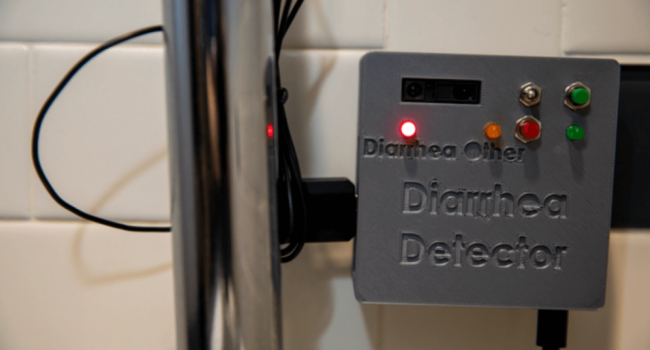Maia Gatlin of the Georgia Institute of Technology has developed a toilet sensor to help detect a cholera outbreak. She is presenting “The Fecal Thesis: Using Machine Learning to Detect Diarrhea” at the annual meeting of the American Acoustical Society in Nashville.
The technology is based on the fact that different types of excreta — urination, defecation and diarrhea — differ in sound. Each sound of the different types of excretions was converted into a spectrogram, which essentially captures the sound into an image.
The spectrogram images were used as input for machine learning. The performance of the algorithm was then tested on data with and without background noise. The goal was to make sure that it gets the information to interpret the sounds with the sensor, regardless of the environment.
In the end, the sensor successfully recognized diarrhea (a major symptom of cholera). However, how exactly the microphone differs from the hearing and sensation of an ordinary person, who can recognize diarrhea himself, is not specified in the report of the Acoustical Society of America.
The engineer wants to use the AI sensor in places where intestinal infections such as cholera are common. “It takes up little space and is noninvasive in approach. The technology can be deployed in areas where cholera outbreaks are a constant risk,” she explains. It would, in the end, save lives.
There are many diseases that can potentially be detected by analyzing human waste. One such infection is cholera. It’s a bacterial disease that causes diarrhea and affects millions of people. About 150,000 people die of cholera worldwide each year. The infection is spread through contaminated food and water. Sometimes the bacterium is transmitted through undercooked shellfish and other seafood-associated infections.
The sensor can also be used in disaster areas where water contamination causes waterborne pathogens to spread. And also in nursing facilities to automatically monitor patient defecation. In the future, a toilet with a microphone will come in handy in homes for people to check their well-being through defecation, the engineer is confident.


